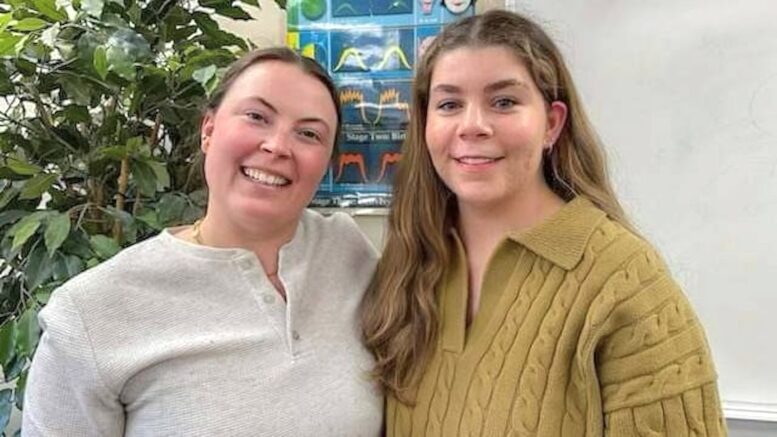“Unfortunately, it really shows that in times of budget cuts, it is primarily women and children who bear the brunt of it and whose services are usually the first to be reduced,” says Gabby Lamarche, one of two Yellowknife residents training to be midwives.
The territorial government plans to cut nearly $1 million from midwifery services as part of its 2024 proposed budget. This would include the loss of four practitioner positions created in 2021 in Yellowknife, Behchokǫ̀, Dettah and N’Dilo.
“It’s not just a Yellowknife thing, the territorial program is supposed to be a program where all communities lean on each other in terms of practitioner resources to make sure that the programs are running smoothly,” says Lamarche. “By removing a potential pool of midwives, you’re really reducing that stability and that ability for midwifery teams in Hay River or Fort Smith to be stable and supported.”
Upon hearing the news, Lamarche and Zoe Guile say they’ve become anxious and unsure of what this could mean for their future, working and living in the territory.
“The big thing is that implementation in Yellowknife is not taking away (from other communities). It’s like putting roots so that the program can grow,” says Lamarche.
These cuts would be a major setback to the midwifery program “undoing decades of work.” Not only does this affect the ability of northern women and families to access reproductive care but for future midwives practicing in the north.
“Midwifery care is not an extra it is primary care,” says Guile, the idea that the Yellowknife obstetric unit is sufficient in giving women across the territory access to adequate care is misguided.
“It has been shown time and time again through traditional knowledge or Western scientific research that midwifery care leads to better health outcomes.”
Guille stresses the need for alternatives outside the traditional healthcare model for people who may not feel comfortable going to the hospital. “Being able to provide care outside of those clinical settings can be life-saving for people.”
Whether on the land or in the home, midwives can “get into the community and provide care in a different way.”
Having midwives, doulas and birth workers as part of health care can reduce those barriers, echo the pair.
The Midwives Association of the Northwest Territories has stated the potential $990,000 funding cut was made without any consultation with the government’s own Advisory Committee on Midwifery, which is mandated to provide expert advice to the Minister, the Department of Health, and the Health Authorities on matters about the development and expansion of midwifery services.
Also, the Indigenous Advisory Board has not been included in any discussions about this proposal despite the impact it will have on the future development and provision of culturally safe sexual and reproductive care services for Indigenous communities and training opportunities for future midwives.
The association stated these proposed cuts are “contrary to the expressed needs and calls for expanded midwifery care that have been voiced by citizens of the NWT,” going back to the first public engagements in Fort Smith more than 25 years ago, and echoed in subsequent public engagements undertaken by the government in 2012 and 2017.

Yellowknife Centre MLA Robert Hawkins speaks in NWT Assembly. (Image courtesy of Assembly Livestream.)
The issue has been repeatedly raised during recent Oral Questions by several Regular MLAs.
“Midwives are more than just baby catchers,” said Yellowknife Centre MLA Robert Hawkins. “As a matter of fact, they provide counselling, they provide information on pregnancy, sexual health, they order tests, they provide ultrasounds, they do PAP smears, prescribe medication.”
“They also provide continuing education during and after the birth … they help with lactation consultation, infant feeding. They have truly become a continuation of the healthcare system.”
The Standing Committee on Accountability and Oversight has also recommended restoring the funding for midwifery.
The pair of students are set to graduate in the spring of 2026 and look forward to returning and hopefully practicing in Yellowknife.
“Investing in midwifery services is investing in the population and we need that care in all communities.”





